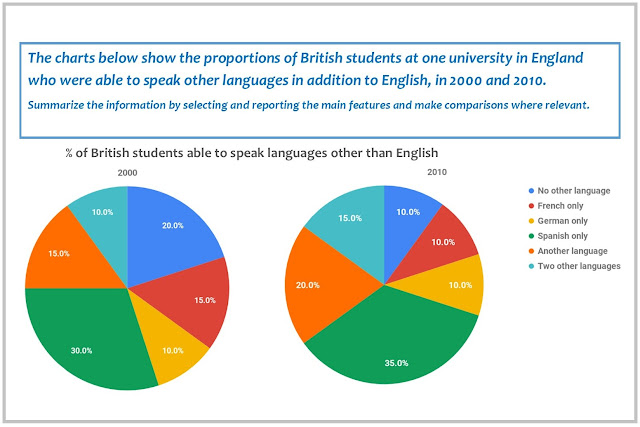Do international exams in English have something to do with real life?
I often hear people criticize tests like IELTS or C2 Proficiency for having nothing to do with real life. Well, I disagree. So much so that I have to split the post on this topic into two parts.
Part 1.
First and foremost, a universal “real life” does not exist. A farmer in Nebraska, a university professor in Oxford, and I have very different real lives. The farmer won’t write essays, the university professor won’t make Stories on Instagram, and I will do both.Second, exams were created for very specific “real lives.” If you go to official exam websites and check their descriptions, you will find the following:
- “IELTS is an English language test for study, migration or work. IELTS is accepted by more than 10,000 employers, universities, schools and immigration bodies around the world.”
- “Preparing for and passing C2 Proficiency means you have the level of English that’s needed to study or work in a very senior professional or academic environment, for example on a postgraduate or PhD programme.”
Finally, if your real life is about writing comments on social media or chatting with your British friend, do just that. What can possibly be more real? What do you need an exam for?
Deciding to take an exam and criticizing its tasks is like deciding to eat soup with a tea spoon and saying, ‘Stupid tea spoon. It’s so not right for this.” Indeed, it isn’t. There is nothing wrong with the spoon though. You are just using it for a purpose it was not designed for.
On a more personal note, I honestly don’t get this obsession with exams, particularly among Russian teachers. I mean I love taking them. But as a person who spent a year teaching and studying at an American university, helped multiple students get admitted, and blogs in English, I see how all these tests are connected to real life. If you don’t, don’t take these exams. If you do decide to take them anyway, at least don’t criticize the tasks.
Part 2.
Sometimes I think, “Those people who criticize or complain about exams being different from real life… have they even seen the assessment criteria?” Let’s have a look-see at top score descriptions of IELTS and C2 Proficiency.IELTS Speaking
- develops topics fully and appropriately;
- uses idiomatic language naturally and accurately;
- uses a full range of structures naturally and appropriately;
- is effortless to understand.
C2 Proficiency Speaking
- produces extended stretches of language with flexibility and ease and very little hesitation;
- interacts with ease by skilfully interweaving his/her contributions into the conversation.
IELTS Writing
- presents a fully developed position in answer to the question with relevant, fully extended and well supported ideas;
- uses a wide range of vocabulary with very natural and sophisticated control of lexical features;
- uses a wide range of structures with full flexibility and accuracy.
C2 Proficiency Writing
- communicates complex ideas in an effective and convincing way, holding the target reader’s attention with ease;
- uses a wide range of vocabulary, including less common lexis, with fluency, precision, sophistication and style;
- use of grammar is sophisticated, fully controlled and completely natural.
In what universe are these not real life skills?! Is it only useful to develop topics fully and contribute to conversations skillfully in exams? Is holding the reader’s attention with ease a useless skill? Or is using English accurately, appropriately, with precision and style a bad idea in real life? And did you notice the word “natural”?
- produces extended stretches of language with flexibility and ease and very little hesitation;
- interacts with ease by skilfully interweaving his/her contributions into the conversation.
IELTS Writing
- presents a fully developed position in answer to the question with relevant, fully extended and well supported ideas;
- uses a wide range of vocabulary with very natural and sophisticated control of lexical features;
- uses a wide range of structures with full flexibility and accuracy.
C2 Proficiency Writing
- communicates complex ideas in an effective and convincing way, holding the target reader’s attention with ease;
- uses a wide range of vocabulary, including less common lexis, with fluency, precision, sophistication and style;
- use of grammar is sophisticated, fully controlled and completely natural.
In what universe are these not real life skills?! Is it only useful to develop topics fully and contribute to conversations skillfully in exams? Is holding the reader’s attention with ease a useless skill? Or is using English accurately, appropriately, with precision and style a bad idea in real life? And did you notice the word “natural”?
I think before jumping to conclusions, it’s a good idea to check with official sources. It’s also a good idea to see some exam tasks as an opportunity to grow rather than to complain.
PS: The assessment criteria of all exams are available online. Here are IELTS and C2 Proficiency descriptions:
- IELTS Speaking
Image credit: Inês Pimentel on Unsplash





Comments
Post a Comment